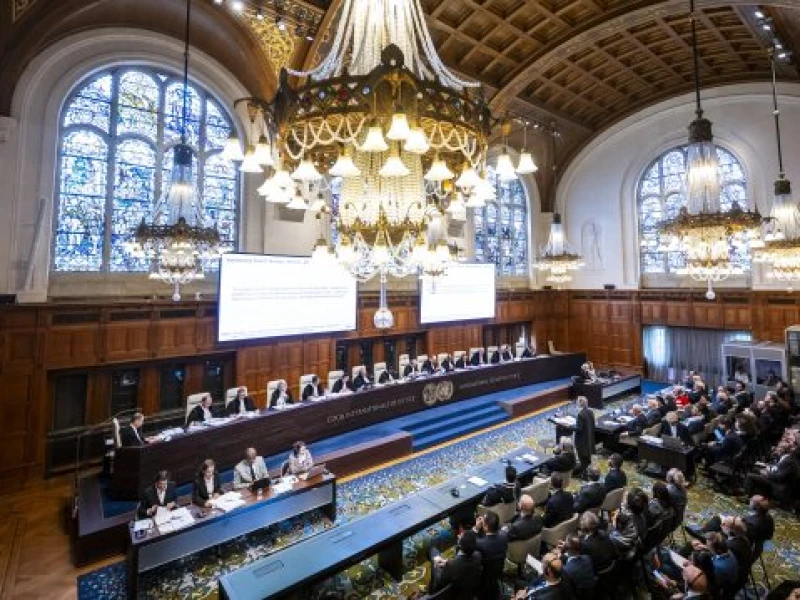The International Court of Justice (ICJ) will issue an advisory opinion on Wednesday on Israel’s legal obligations to ensure humanitarian aid reaches Palestinians in Gaza and the occupied West Bank.
The U.N. General Assembly sought the court’s guidance last year after Israel barred the U.N. Relief and Works Agency for Palestine Refugees (UNRWA) from operating in Gaza. Though nonbinding, the ruling could carry major political weight and shape U.N. aid operations globally.
The request came before the U.S.-brokered Gaza ceasefire on 10 October, which allows 600 aid trucks into the enclave daily. Israel has partly complied, while Hamas negotiator Khalil al-Hayya confirmed the deliveries to Egypt’s Al-Qahera News.
During April’s hearings, Palestinian envoy Ammar Hijazi accused Israel of starving and displacing civilians by blocking aid. Israel boycotted the sessions but sent a 38-page written defence denying any breaches of international law.
Israel’s ban on UNRWA, imposed in January amid claims of Hamas infiltration, led to severe shortages after a three-month halt in aid. A famine was declared in parts of Gaza in August before partial deliveries resumed via the U.S.-backed Gaza Humanitarian Foundation, which later suspended operations following the ceasefire.
Legal experts say the ICJ’s opinion will reaffirm that member states cannot obstruct U.N. humanitarian work. The court has previously ruled Israel’s separation barrier illegal and its occupation of Palestinian territories unlawful.
Meanwhile, the International Criminal Court has issued arrest warrants for Prime Minister Benjamin Netanyahu and former defence minister Yoav Gallant, accusing them of using starvation as a weapon—a charge Israel rejects.
The Gaza conflict, triggered by a Hamas attack that killed 1,200 people and took 250 hostages, has since left over 68,000 Palestinians dead, according to Gaza’s Health Ministry—figures recognised by U.N. agencies but disputed by Israel.


 Prev Post :
Prev Post :
